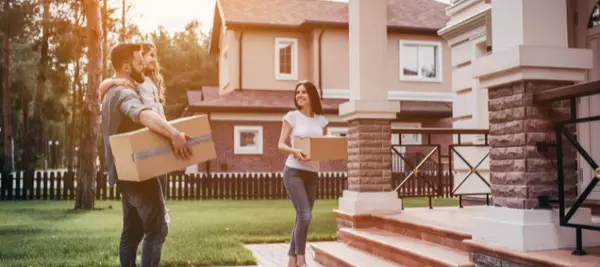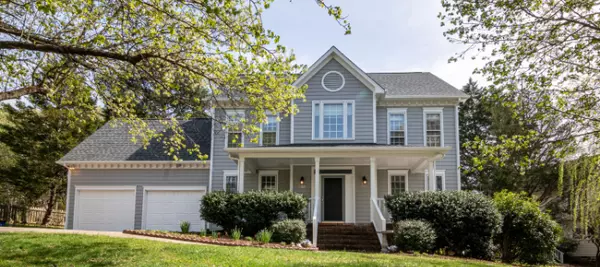How To Choose a Buyer When Selling Your Home
How To Choose a Buyer When Selling Your Home

How do I choose a buyer for my house?
The answer to that question depends on how fast you want to sell the house and at what price.
A house with a lower list price means a faster sale but you could be leaving money on the table. After all the trouble you went to to get buy the house and going through the selling process, do you want the final purchase price to be a steal for the buyer?
The first thing you need to know then, it the market value of your home.
How do I know what my house is worth?
There are several sites out there to give you a good idea of what your home is worth. Sites like Zillow, Trulia and Realtor can give you an estimated value of your house.
But don't take the list price at face value. The figure they come up with will include features that might not be in your house. If your house is in need of renovation, you might not be getting the true market value for your property.
A good piece of advice for any piece of real estate would be to talk to a real estate agent to get a valuation on your home before you start looking for buyers.
What factors affect the value of my home?
Age, condition and general location are some of the factors to consider when trying to determine the value of your house. But aside from those factors, there are also market conditions to take into account.
For example, if there are more buyers than sellers for your home and comparable homes, then that places you in a seller's market where you would have the advantage during negotiations. This also means that you can ask for a higher price given that buyers don't have as much choice. In the opposite scenario, a buyer's market, there are few buyers and those prospective buyers are less likely to get into a bidding war since they can find another home easily.
Depending on the market you find yourself in, interested buyers may look very different. For example, a seller's market will mean more pressure on a buyer to crowd out other potential buyers quickly with a higher offer than your asking price.
What are some things to look for in a potential buyer?

When you know what your home is worth and had an open house or two, how do you what buyer stands out from other buyers?
During open houses...
If you decided to be present during an open house, the best you can do is present the home equally to everyone. Even if someone drove in in a sports car and wears nice shoes, there's no guarantee that their credit is in good enough shape to match the asking price or even come close.
If you see people with real estate agents accompanying them or walking around with copies of their documentation, then it may be worth asking them some questions. Buyers who go through the process of hiring real estate agents and are already in touch with a mortgage lender are probably able to complete the sale quicker than others that are just starting to look at properties.
Your listing agent could also have some contacts bringing over their clients to the house, this means that there's a good chance that these potential buyers are more serious than the average.
After open houses...
After a reasonable amount of time, if all goes well, an offer rolls in. Even better, multiple offers come through.
At this point, both you and your agent should look over the offers together. The best deal depends on your situation and has many moving parts.
For example, the highest bid might require that you make some changes to the property that would end up not getting you as much money in the end compared to a lower bid that offers to cover closing costs and includes a closing date that's more convenient for your future plans.
How do I know if an offer is fair?
An important thing to realize is that you're not required to accept offers. If the offer price differs far too much from the listing price and you know that your property is worth top dollar, then it makes sense to refuse.
Of course, outright refusal is often not the right course of action.
Here are some key terms to help you gauge an offer:
- Financing Contingency
This is a clause that specifies that the offer is dependent on the buyer securing their financing. It prevents legal action against the buyer if they cannot secure the financial means to go through with the offer.
This contingency puts some stress on the seller because it creates some uncertainty. In a more competitive market for a buyer, many buyers will opt to not have this be a part of their offer.
- Cash offer
Most real estate transactions involve a mortgage, where a mortgage lender gives the buyer around 80% of the final price. A loan like that can be hard to secure, as the financing contingency clause explained above illustrates. What a cash offer means however is that the buyer is able to pay for the house without the need for external financing.
A cash offer is especially attractive for buyers since it means that the sale can be completed faster than a sale that involves a mortgage.
- Offer period
A buyer's offer commonly includes a time period for which the offer is valid. This means that, as the seller, you need to either accept or make a counteroffer during the specified period. If an offer has a very short offer period and you are dealing with multiple offers then it can force your hand. It's important to be in contact with your real estate brokerage, and preferably your agent, to see if the rush is worth it.
- Dual Agency
This is something that should come up with your real estate agent when you're talking about your listing agreement.
Dual Agency means that the listing agent, your agent, is also the buyer's agent, dealing with both ends of the real estate transaction.
Though agents are required to put their clients' interests first, you can opt out of this if it makes you uncomfortable.
What should I do if the buyer backs out after making an offer?

The first thing you should try to do is to figure out why they backed out.
Your listing brokerage might have done a stellar job at finding a great price point for your home but a buyer's situation can change quickly. Between a change in the interest rate that impacts their loan estimate or a more attractive offer, there are quite a few factors that have nothing to do with you.
However, if the reason for the potential home buyer backing out is something to do with the property then it could be worthwhile to make some changes. It's important to have a full disclosure policy when it comes to possible defects in the home, if things come up during home inspections that you did not disclose then that could easily frighten buyers. No buyer wants to sign a contract or negotiate further if they feel like the seller may be withholding information.
If there is something significant that made the buyer back out then it may be worth removing the house from local real estate boards to fix the situation before selling again. Given how many factors are involved, this is the best time to turn to your real estate agent and listen to their advice. The longer a home stays on the market, the further down goes its selling price.
You can't control market conditions but you can always make it more enticing for a buyer by offering to pay for the closing costs up-front or putting in writing that you will do some repairs to a specific area of the home. Buyers don't back out for no good reason, try to suss out what you can do as a seller to prevent it from happening too long.
Should I accept the first offer that comes along or wait for a better one?
While it might be tempting to jump on the first offer, it's best to give yourself time to decide but also give other buyers time to decide whether or not they want to compete.
When you get the first offer, it's a good idea to notify the other interested parties, that's something that your real estate agent would be in charge of. Just because the first offer seems too good to be true doesn't mean that another one isn't waiting around the corner.
Notifying the potential buyers that have yet to make a move can help increase the perceived value of your property. Of course, you shouldn't lose yourself in waiting for better endlessly. Make an excel sheet with the offers' pros and cons as well as setting up automatic alarms to remind you of each offer's period.
If an offer satisfies you, and you don't foresee more lucrative offers coming in, then it's time to get in touch and maybe buy some champagne.
If I don't like any of the offers, what can I do?
Have an honest chat with your agent. Real estate can feel cryptic and unfair but if someone is willing to invest in a down payment for your home then that means there is an opportunity waiting for you. Turning down that opportunity could be the right thing, but keep in mind that real estate moves fast.
It may be time to take your house off the market and while you wait for better conditions to sell, use the time to add some features to your home to increase its value so that you can get a higher offer when you do list it again. Do not, however, leave it to linger for too long.
View All Homes For Sale in Greater Vancouver >>>
About Search Home Listings
SearchHomeListings.ca has simplified the home buying and selling process by giving you superior tools with up-to-the-minute information including active homes for sale, sold homes, market reports, and a home valuation tool! We have a team of success managers on standby to support you with setting up your saved home search and agents ready to take you out on a tour. Tap into our industry experts from inspectors, to contractors to interior designers to provide you with the best prices and service possible. Everyone attached to our website has been rigorously vetted and is made up of caring, knowledgeable professionals that work tirelessly to help you to make your home buying experience as stress-free as possible. Contact us today to see how we can help!
Sites We Follow
Categories
Recent Posts










GET MORE INFORMATION

